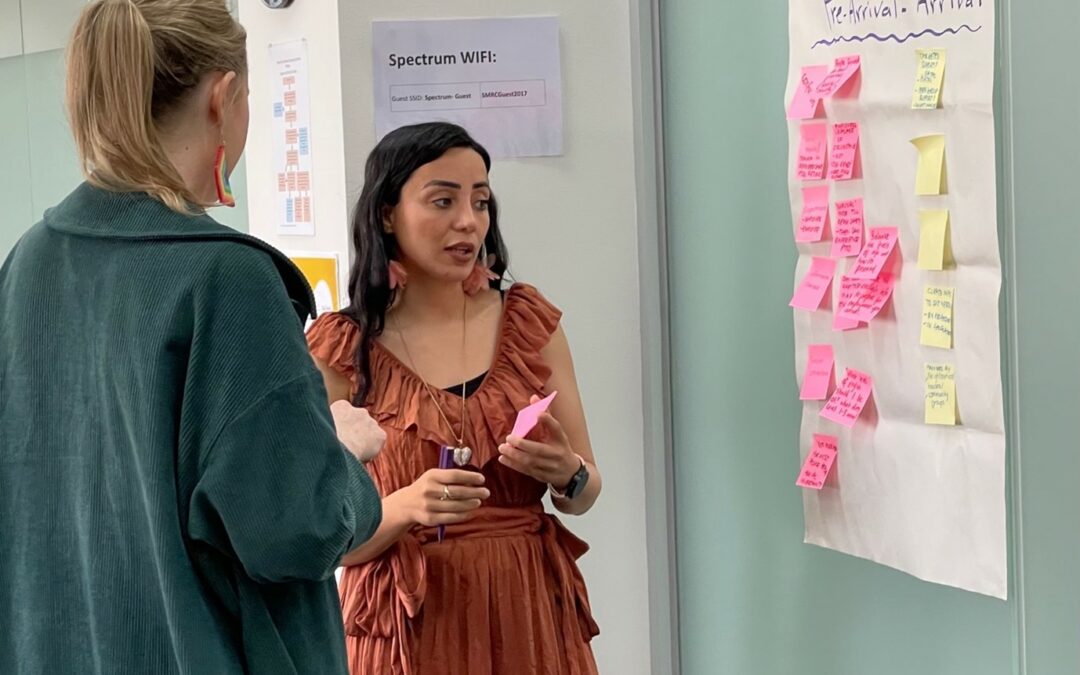Grameen Australia commenced operations in Australia in mid-2020, with the aim of becoming the leading microenterprise development organisation by 2025 by supporting 10% of the 360,000 financially excluded Australians on low incomes who are un/under-employed (particularly women) to access finance to start or grow their own microenterprises.
Engaging in microenterprise can help women and their families to break out of the cycle of poverty and longerterm socio-economic disadvantage, have meaningful livelihoods, and the economic strength to experience hope and lead full lives.
Building on Nobel Laureate Professor Yunus’ philosophy and successful ‘group model’ Grameen Australia will launch their first pilot branch in Broadmeadows (Hume LGA, Victoria) in early 2022, and scale-up to engage large numbers of women from refugee and Culturally and Linguistically Diverse (CALD) backgrounds in microenterprise, whilst operating in an efficient and sustainable manner.
Since July 2021, Grameen Australia staff have undertaken extensive local stakeholder engagement, user needs-analysis and ecosystem mapping, to ensure that our program is human-centred and keeps the needs of the Hume community at the core of service design, including:
- desktop and market research to understand the local community, and identify any unmet need for microenterprise development support
- consumer-surveys to identify the specific needs of refugee and migrant community groups, and identify the key stakeholders they associate with
- a comprehensive review of services currently available to support our target cohorts, particularly in their efforts to gain employment
- local service provider mapping, to visually represent the current service ecosystem
- user-profiling to create five distinct ‘client personas’ likely to pursue microenterprise
- focus groups/interviews (often in language) to understand the users’ employment experience
- client journey mapping to map the users’ employment journey.
The Grameen research concluded that:
- There are multiple barriers to employment for Hume residents from refugee and CALD backgrounds, including difficulty with English and recognition of overseas qualifications, lack of relevant local experience and in-language support and materials
- There is an unmet need for support, particularly access to finance, to encourage refugee and CALD community groups in the Hume region, to start or grow their own microenterprise
- Partnerships across all sectors providing services to Hume residents from refugee and CALD backgrounds will be integral to establishing the first Grameen pilot branch, given that options to pursue self-employment are currently very limited.
This research demonstrates that Grameen’s ‘place-based’ group model is ideally suited to meet the needs of the target cohorts in Hume and its surrounding areas.




